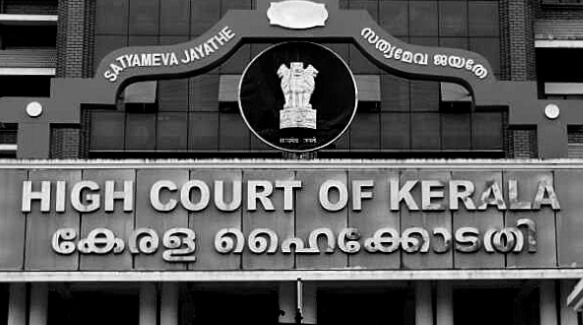Kerala High Court Dismisses PIL Seeking Ban On Children's Circumcision

The plea alleged that circumcision also causes trauma at an early age which can result in disrupted attachment, cognitive delays and impaired emotional regulation.
The Kerala High Court has recently dismissed a plea filed by 'Non-Religious Citizens', a registered cultural organisation, to ban the practice of non-therapeutic circumcision.
The division bench of Chief Justice S. Manikumar and Justice Murali Purushothman stated that the court is not a law-making body and the instant writ petition was not maintainable because it was filed on the basis of newspaper reports.
“Circumcision is the surgical removal of the foreskin, which is the tissue that covers the head (glans) of the male genital,” the plea stated.
The plea alleged that this practice violates the basic human rights of children. The plea also focused on the traumatic events that are faced by children after circumcision. Children are being compelled to follow the process of circumcision which also results in bleeding, penile infection etc, the plea mentioned.
The United Nations Convention on the Rights of Child 1989 and the International Covenant on Civil and Political Rights adopted by the UN General Assembly emphasises that all children have the right to live in a secure, loving environment, free from any form of harm, assault, abuse and discrimination, the plea stated.
“The practice of this taboo violates the fundamental right of 'right to life' of the citizens guaranteed under Article 21 of the Constitution of India. If the State machinery fails in giving protection to the rights of the citizens, as a guardian of the Constitution, the Constitutional courts are bound to interfere in the matter,” the plea argued.
The plea also stated that the rights and freedom of the children cannot be surrendered in accordance with mere religious fanaticism and addictions of the parents. Only after the majority, should the child be allowed to choose any religious ritual, the plea stated.
The plea also highlighted the need for directions to frame a law prohibiting the circumcision of children and to declare the practice of non-therapeutic circumcision on children illegal.
The bench heard the plea and arguments and observed that petitioners had relied on newspaper reports. They relied upon the case of Samant N. Balakrishna v. George Fernandez and Ors. (1969) and observed that “a newspaper report without any further proof of what had actually happened through witnesses is of no value.”
The bench also referred to the case of Holicow Pictures Pvt. Ltd. v. Prem Chandra Mishra and Ors. (2007) where the Apex Court held that “a petition based on unconfirmed news reports, without verifying their authenticity should not normally be entertained.”
Accordingly, the bench dismissed the plea.
Case Title: Non-religious citizens & Ors. v Union of India
Statute: Article 21 of the Indian Constitution, United Nations Convention on the Rights of Child 1989 and International Covenant on Civil and Political Rights
